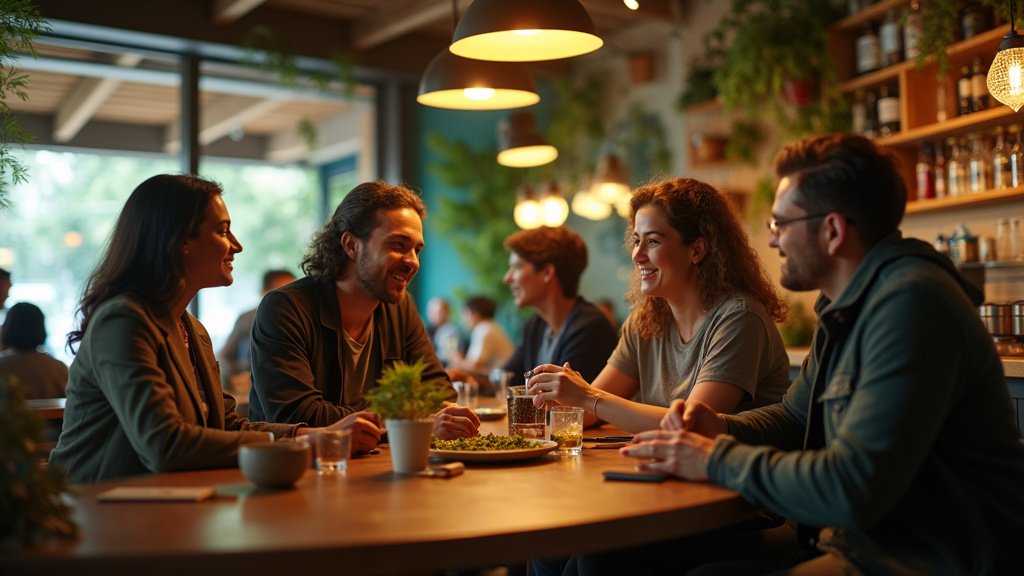Oregon officials have taken a crucial step toward potentially legalizing cannabis social lounges, approving a draft ballot title and summary for a voter initiative that could reshape the state’s cannabis landscape. The initiative’s organizers are now one step closer to launching a signature-gathering campaign, the success of which could place the measure before voters in the November 2026 election.
The Proposed Amendment: A New Chapter for Cannabis Consumption
The core of the initiative centers on amending existing state law. If approved by voters, the amendment would mandate the Oregon Liquor and Cannabis Commission (OLCC) to establish a framework for licensing and regulating “social lounges.” These establishments would offer a designated space where adults could consume specific cannabis products in a public setting, a significant departure from the current legal prohibition against such consumption.
This proposed change signals a potential evolution in how Oregonians can experience cannabis. Currently, consumption is largely restricted to private residences, limiting opportunities for social interaction centered around cannabis use. The social lounges, as envisioned, would provide a regulated environment for adults to enjoy cannabis products, fostering a potentially new social dynamic.
Licensing and Regulations: Who Can Participate?
The initiative outlines specific parameters for who can operate these social lounges. Interestingly, the proposed law stipulates that only “microbusinesses” would be eligible to apply for licenses. This detail suggests an intention to prioritize smaller-scale cannabis operations and potentially create new economic opportunities for these businesses. Retail cannabis dispensaries, on the other hand, would be excluded from eligibility.
The proposal also addresses the logistics of cannabis consumption within the lounges. Adults would be required to bring their own cannabis products for use on the premises. The initiative specifically prohibits on-site sales of cannabis, focusing instead on the social aspect of consumption rather than a retail experience. Operators would, however, be permitted to sell non-cannabis food and beverages, potentially creating a more comprehensive social experience for patrons.
Local Control and Public Education: Ensuring Responsible Implementation
The initiative recognizes the importance of local governance in the implementation of this proposed change. Local governments would retain the authority to issue their own permits and impose restrictions on social lounges within their jurisdictions. This provision reflects an understanding of the diverse needs and preferences of different communities across the state, allowing for localized adaptation of the regulations.
Furthermore, the initiative underscores the importance of public education. The OLCC and public health authorities would be required to develop and provide educational materials related to the lounges. This emphasis on education suggests a commitment to informing the public about responsible consumption practices and mitigating potential public health concerns. The intent is likely to ensure that the introduction of social lounges is accompanied by a clear understanding of the relevant regulations and responsible cannabis use.
The Significance of the Initiative
This initiative represents a significant development in Oregon’s ongoing efforts to regulate and normalize cannabis use. The approval of the ballot title and summary marks a crucial phase in the process, moving organizers closer to the final step of collecting enough signatures to trigger a statewide vote. If the initiative gains enough voter support in 2026, Oregon could see a new sector emerge in the cannabis industry, creating social spaces for consumption and refining the way the state approaches cannabis regulations.
The current prohibition of public cannabis consumption means the potential change is significant. The ballot initiative is an effort to adapt, modify, and expand the legal framework surrounding cannabis. The next steps will determine if Oregon voters agree with the initiative.



